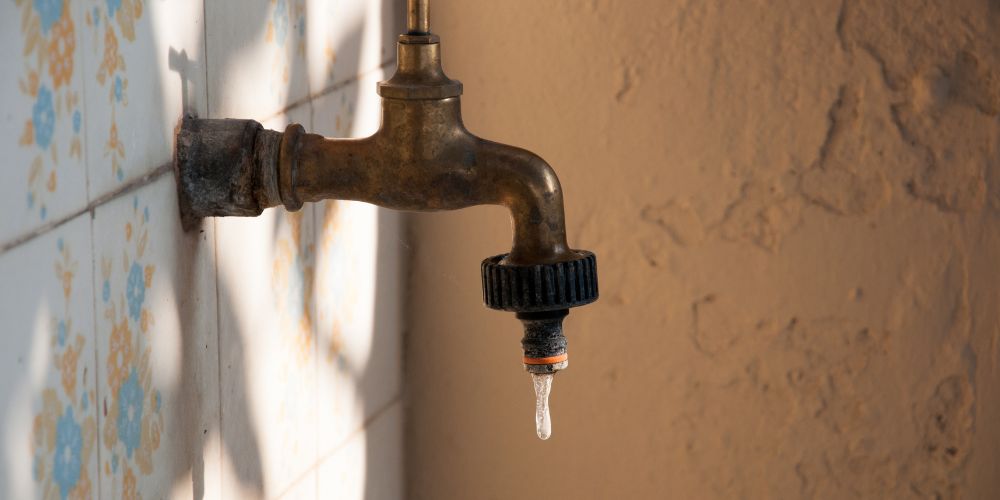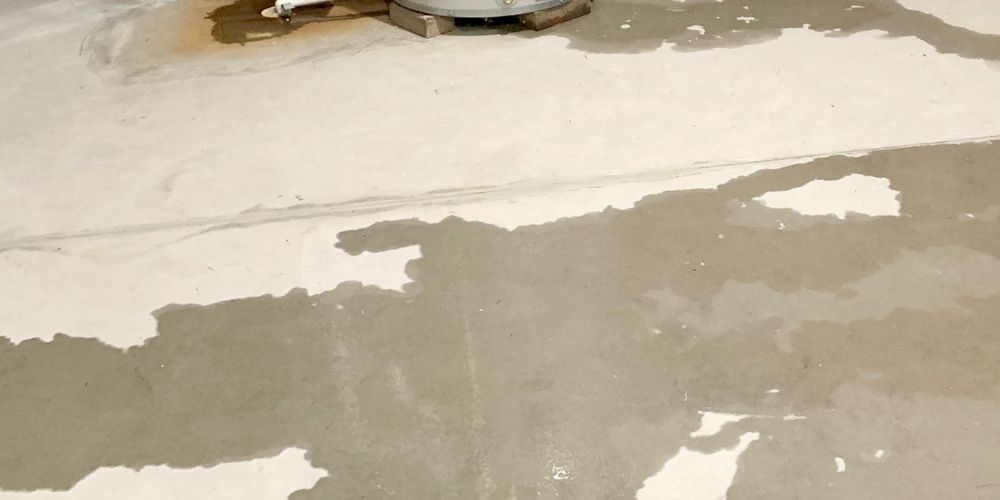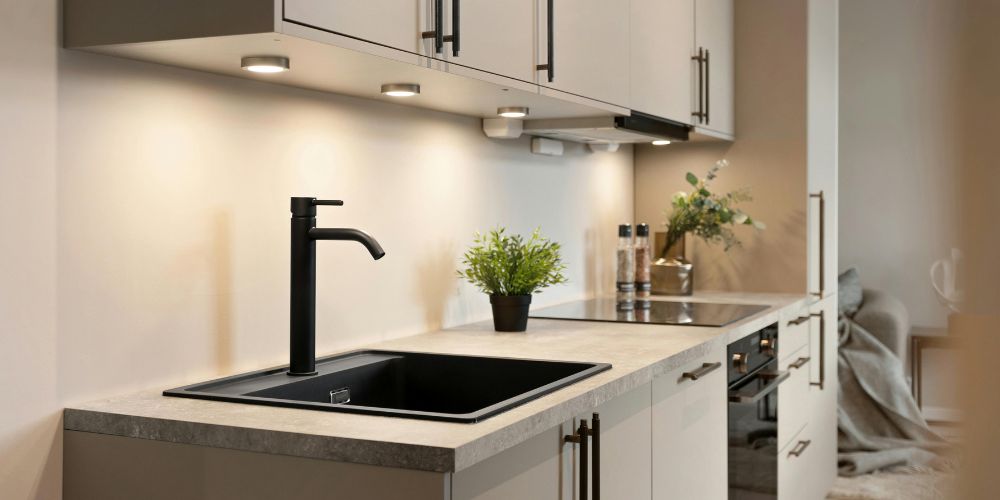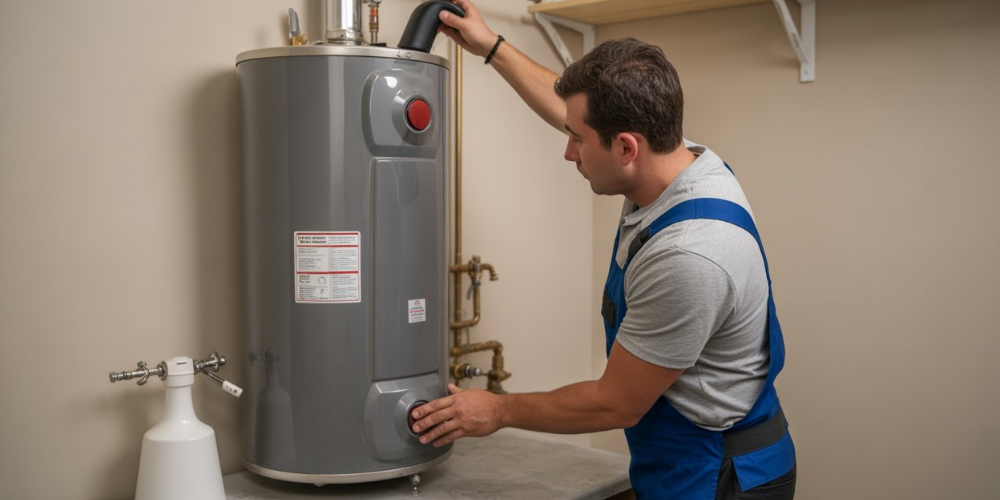Filtering water for personal use has become essential for healthy living. The water we receive often contains contaminants that can harm our health. While many companies offer various water filtration solutions, it’s important to choose the right filter based on your needs and water supply.
Many people buy water filters to improve the taste or appearance of their tap water, but filtration also helps protect against harmful contaminants. A joint investigation by Consumer Reports and Guardian US found that 118 out of 120 tested water sources across the U.S. had dangerous levels of lead, arsenic, or PFAS, affecting over 19 million people.
What is POE and POU?
POE stands for Point of Entry, while POU stands for Point of Use. These terms categorize water filters based on your specific needs.
Point of Use (POU) filters are installed at specific locations within your home, such as faucets, under sinks, and in showers. They focus on delivering clean water for a single purpose at the installation point.
In contrast, Point of Entry (POE) filters offer a more comprehensive solution. Installed directly at the water supply line entering your home, POE filters provide purified water to all the plumbing fixtures throughout your house. One of the most effective POE options is the whole-house water filter, which serves as a one-stop solution for all your water needs.
Tips for Choosing the best whole house water filter for your home
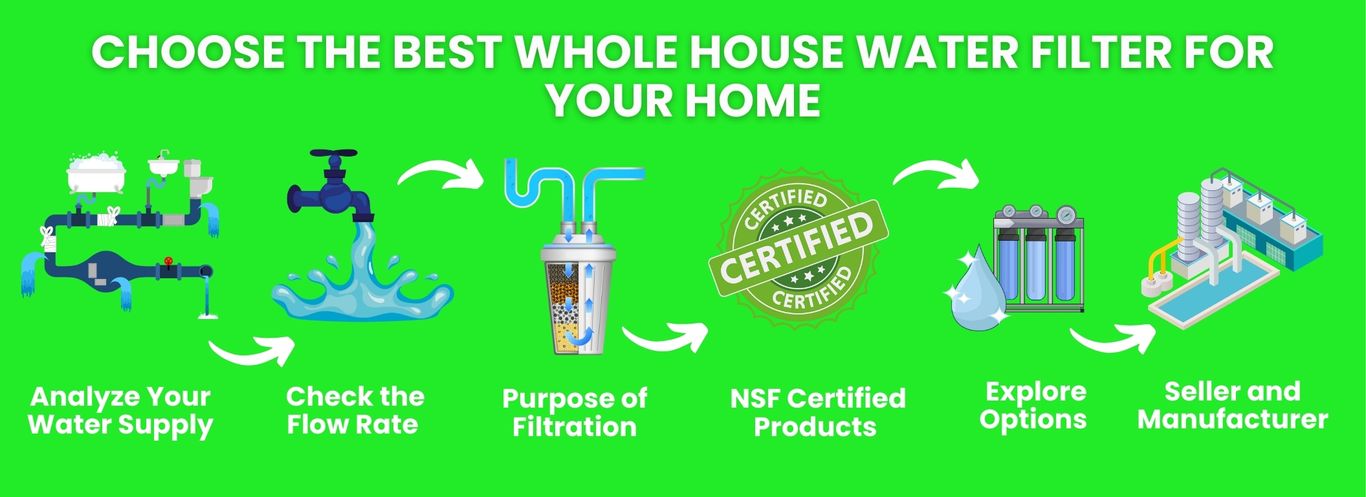
Selecting the right whole-house water filter can make a significant difference in the quality of your water. With various options available, it’s essential to follow a few simple steps to find the perfect fit for your needs. Consider factors like your water supply, purpose, filter quality, cost, and additional features.
1. Analyze Your Water Supply
Start by assessing the quantity and types of contaminants in your water. If your water comes from a private source, such as a well, private supplier, or river, you can use affordable water testing kits available in stores or hire a water specialist for accurate results. If you’re connected to a public water supply, request a water quality index (WQI) report from your local water authority. This information will help you determine the type of filtration system that best meets your needs.
2. Check the Flow Rate of Your Faucets and Dispensers
Many people purchase water filters without checking their faucet flow rates, which can lead to pressure issues. If the flow rate of your hoses is lower than that of the water filter, it increases the risk of hose bursts or leaks. Conversely, if the faucet flow rate exceeds that of the filter, you may experience reduced water flow and frequent clogs due to air buildup.
Variations in flow rates can also affect the performance and lifespan of the filter cartridges. To avoid these issues, measure the flow rate of all your faucets and aim for a water filter with a flow rate that is 1-2 gallons per minute (gpm) higher than your average flow rate.
By taking these simple steps, you can confidently choose the best whole house water filter for your home, ensuring safe and clean water for you and your family.
3. The Purpose of Filtration
Whole house water filters are robust systems designed to meet a variety of needs, from small homes to large commercial facilities. They come in different sizes and flow rates to ensure you get the right fit for your water consumption. If you have a storage tank, it can help you determine the ideal size for your whole house filter.
For those relying solely on a direct water supply, the size of your filter should be based on your daily water usage. To calculate this, keep an eye on your water meter, especially during laundry days for a more accurate reading.
4. Choose NSF Certified Products
When selecting a whole house water filter, always look for NSF (National Sanitation Foundation) certification. This certification ensures that the product meets high safety and quality standards established by the American National Standards Institute (ANSI). Whole house filters typically utilize heavy-duty polypropylene cartridges, which offer reinforced filter housing. Only FDA-approved polypropylene materials receive NSF certification, guaranteeing superior filter quality and efficient filtration.
5. Explore Your Options
The market offers a wide range of whole house filters at competitive prices, so it’s wise to compare different brands and specifications. One of the more affordable options is the Apex EZ 1100, which is rated for pressures up to 100 psi and suitable for both residential and commercial use. It’s particularly ideal for small to mid-sized cafes, beverage dispensers, and offices. If you’re shopping online, keep an eye out for deals that can help lower your costs. Apex water filters frequently offer discounts and promotions, making it easier to find a great deal.
By taking the time to understand your needs and exploring your options, you can find the perfect whole house water filter to ensure clean and safe water for your home or business!
6. Evaluating Seller and Manufacturer Credibility
When choosing a whole house water filter, it’s crucial to consider the credibility of the seller and manufacturer. Reputable sellers often offer benefits like free shipping, installation, and ongoing services. Plus, maintaining a quality whole house filter can cost as little as $20 per month.
Make sure to check the warranty and any complimentary service periods offered. The best whole house water filters typically use polypropylene cartridges, but not all manufacturers provide FDA-approved options, so this is an essential factor to look for.
If the seller or manufacturer offers whole house water filtration installation services, it’s advisable to use their team or hire a certified plumber. DIY installation can often void your warranty, so it’s best to leave it to the professionals.
Tip: Always review the list of contaminants that the filter can remove and read online reviews to assess the credibility of the seller and manufacturer. This will help you ensure you’re getting a high-quality product and reliable service.
Why Choose Whole House Water Filters?
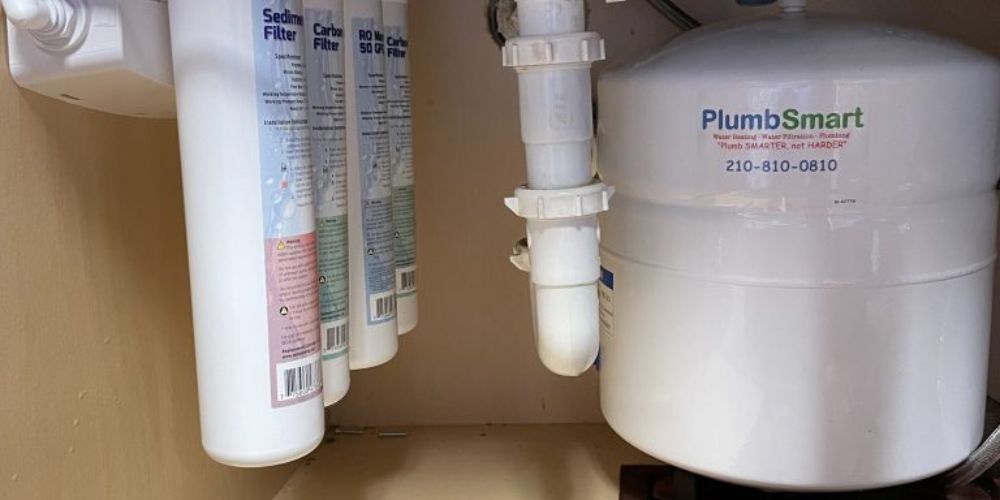
Whole house water filters connect directly to your main water supply line, ensuring that all the water entering your home is treated. Unlike Point of Use filters, which only purify water at specific locations, whole-house filters provide clean water to every faucet and fixture, including those in the kitchen, bathroom, laundry, and even for toilet use.
These powerful systems can remove up to 98% of water contaminants, including:
- Organic Contaminants: Bacteria, algae, fungi, and other harmful microorganisms.
- Hazardous Metals: Lead, iron, arsenic, and mercury.
- Unpleasant Odors: Such as the notorious rotten egg smell.
- Off-Putting Tastes: Improving the flavor of your drinking water.
- Sediments: Including salts, soil, and tiny rocks.
Opting for a Point of Entry whole house filter comes with numerous benefits:
- Reduces Rust: Helps prevent rusting of faucets and fixtures.
- Prevents Clogs: Keeps your pipes clear and flowing freely.
- Maintains Clean Kitchenware: Stops the buildup of unsightly yellow stains on dishes.
- Keeps Bathrooms Spotless: Reduces patches and discoloration on bathroom and toilet floors.
However, before investing in the largest and most powerful whole-house filter, it’s essential to assess your specific needs to determine if it’s the right choice for your home.
Final Words: Ensuring Safe, Clean Water for Your Home
Choosing the right water filter for your home is crucial for maintaining a healthy lifestyle. With contaminants found in many water supplies, investing in a reliable filtration system can protect your family from harmful substances and improve the taste and quality of your water. By understanding the differences between Point of Use (POU) and Point of Entry (POE) filters, and taking the time to analyze your water quality, flow rates, and specific needs, you can select a whole-house water filter that best suits your home.
Remember to prioritize certified products and credible sellers to ensure you’re making a sound investment. Whole house water filters offer extensive benefits, delivering purified water to every faucet and fixture, which simplifies your daily water needs while keeping your home safe and clean. By following these guidelines, you can confidently choose a filtration system that enhances your family’s health and well-being.
Ready to enhance your family’s health and well-being? Contact PlumbSmart today for expert advice and professional water filtration services tailored to your needs!


